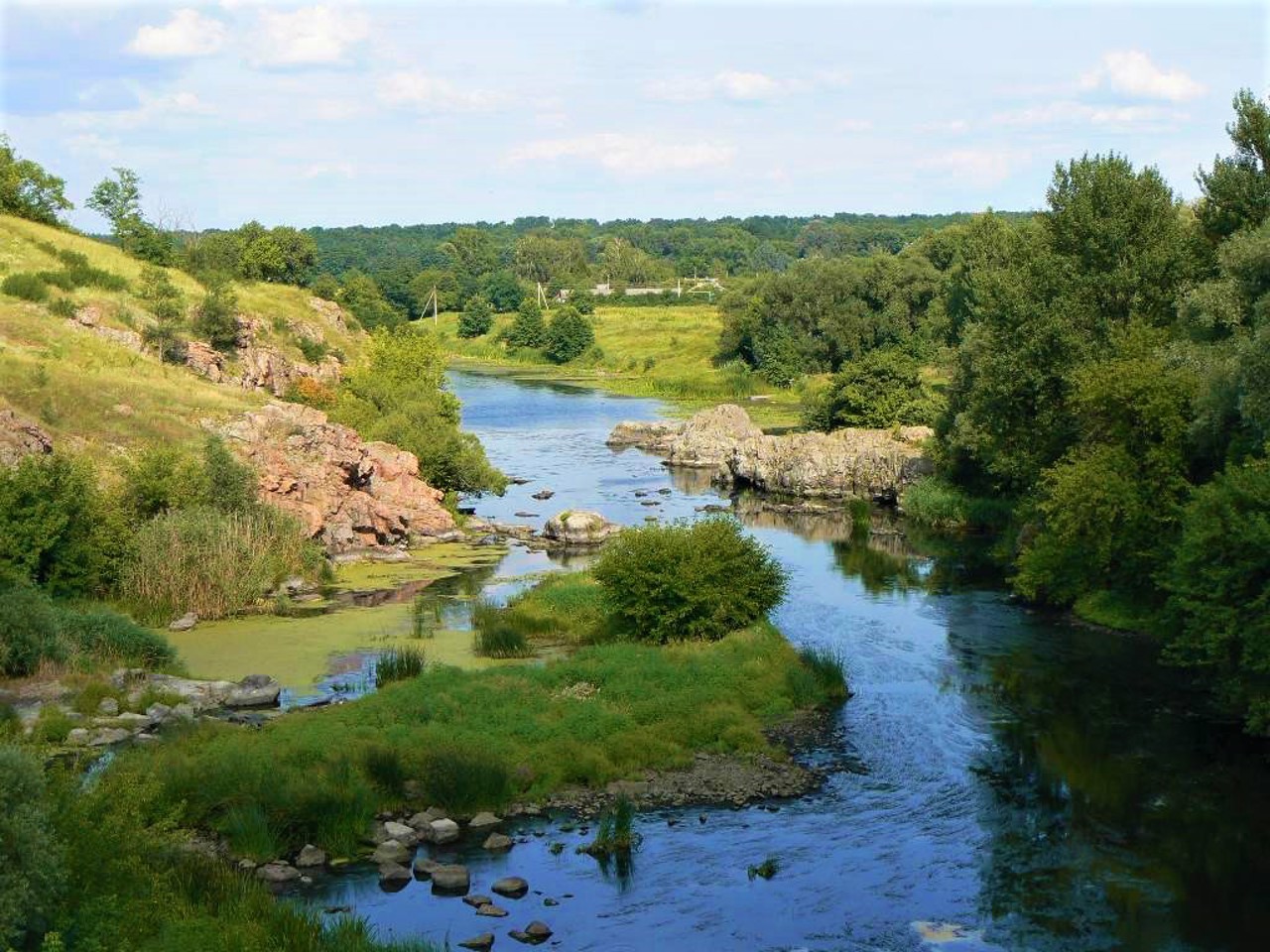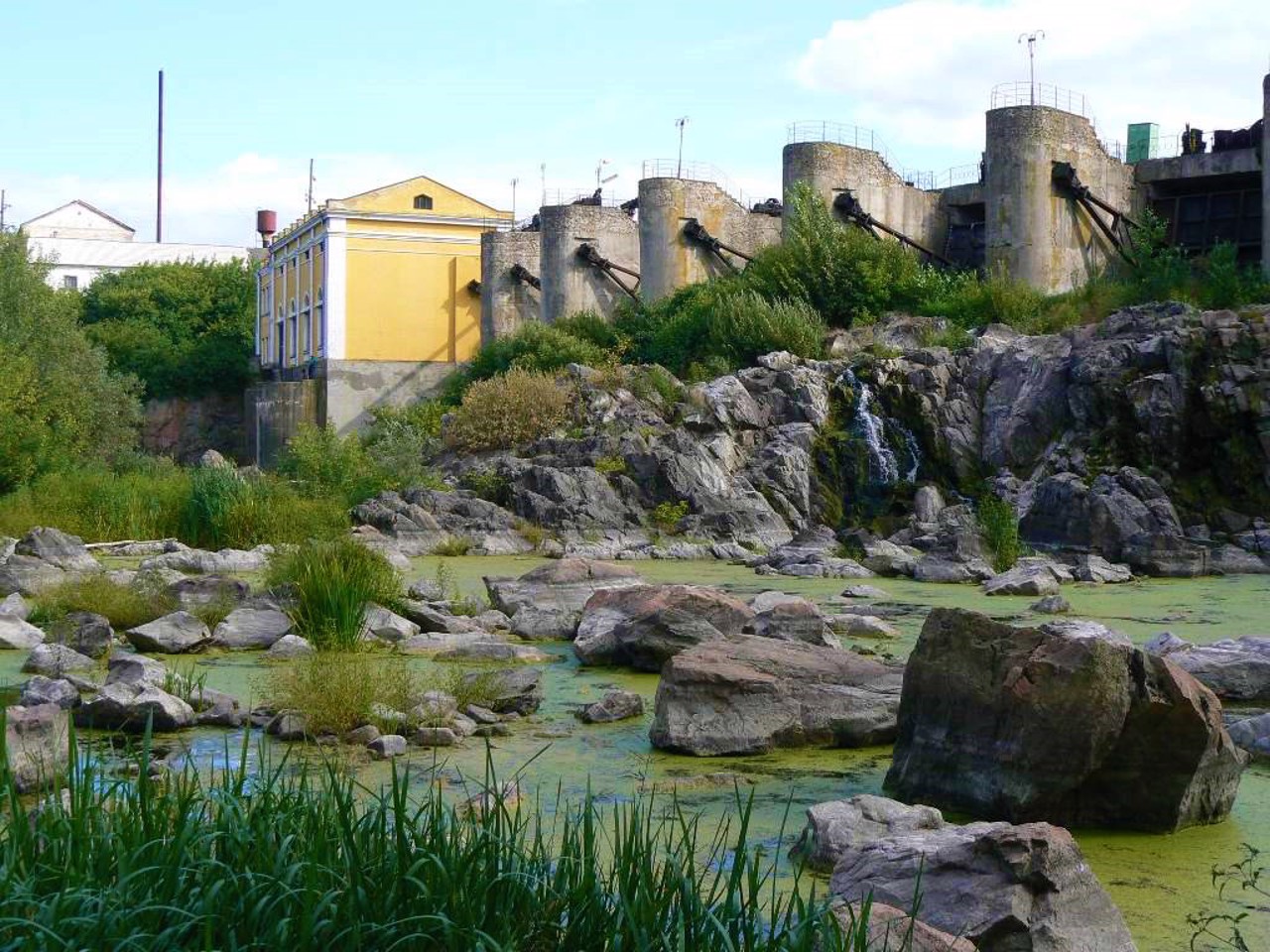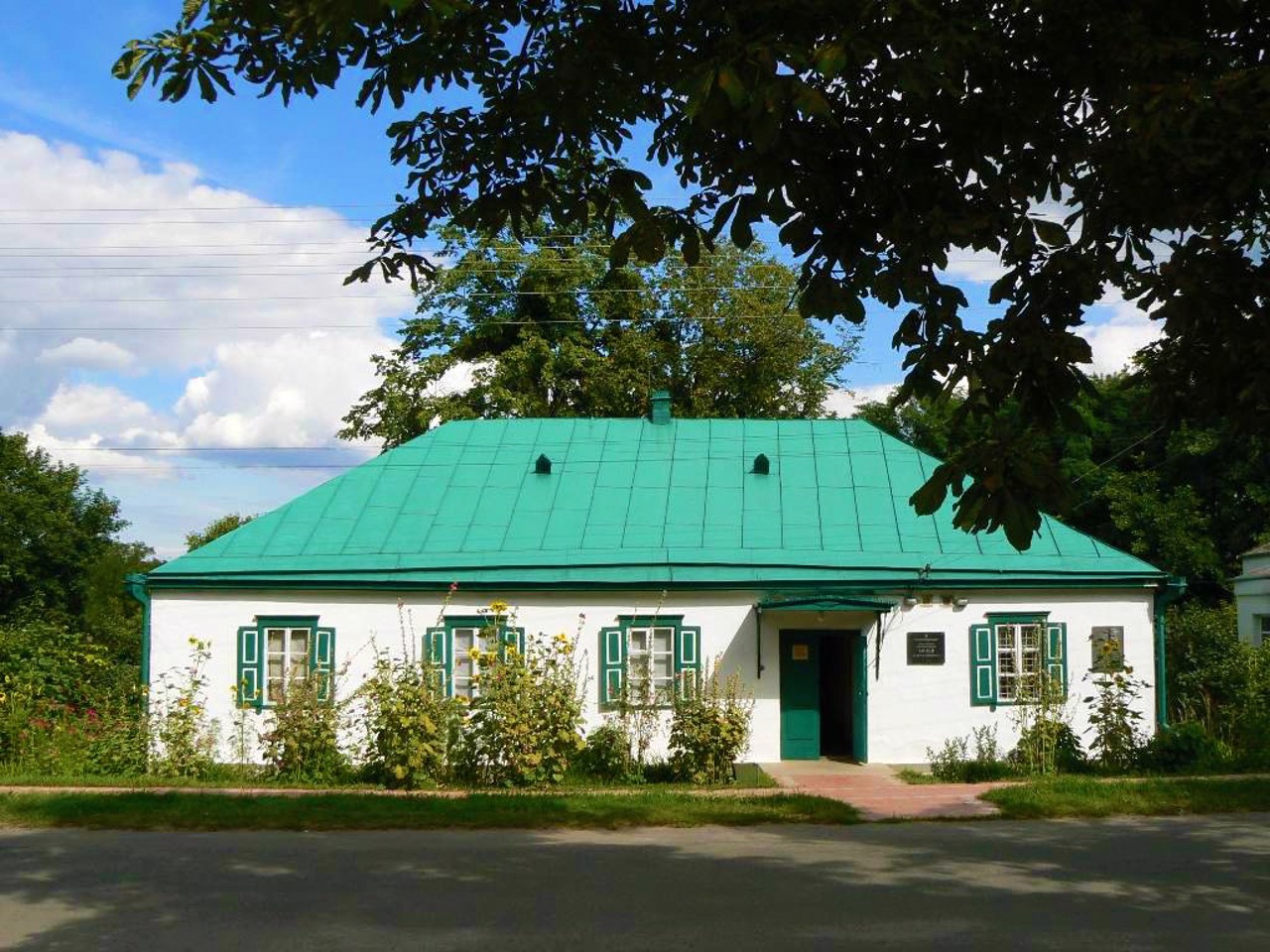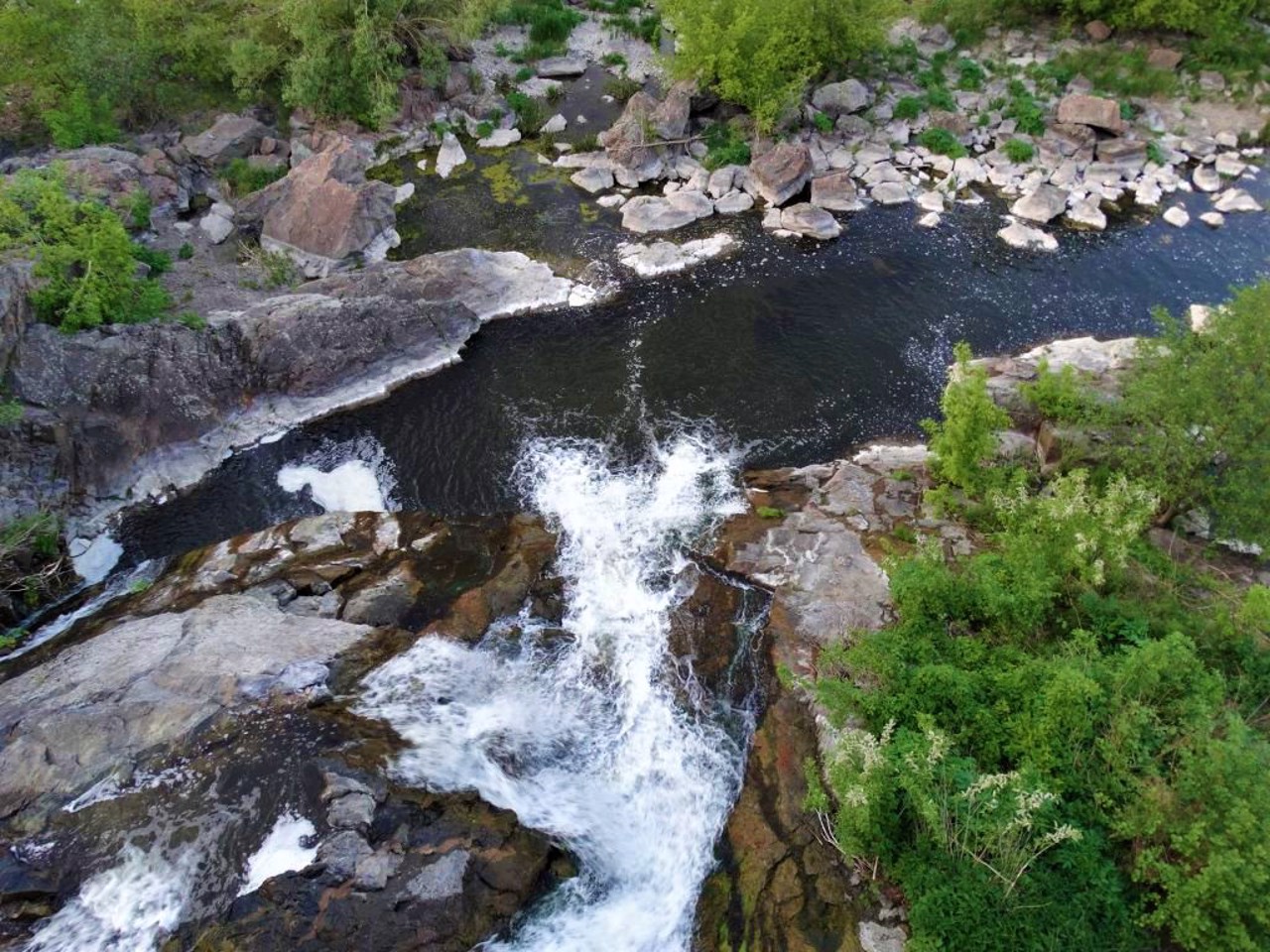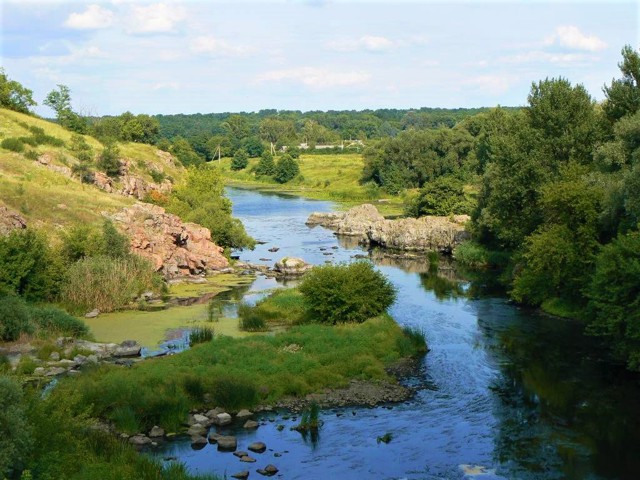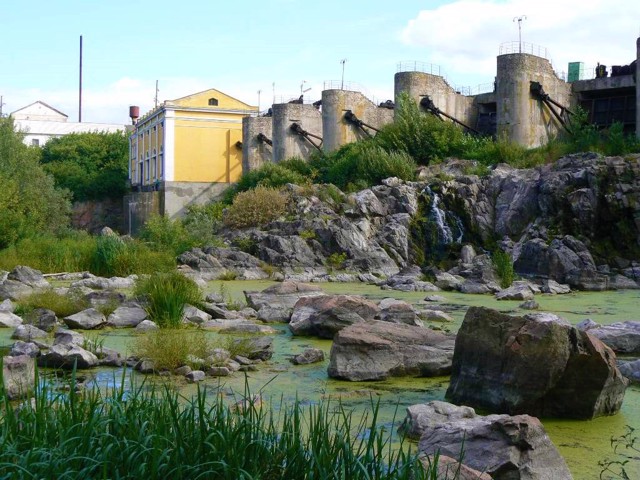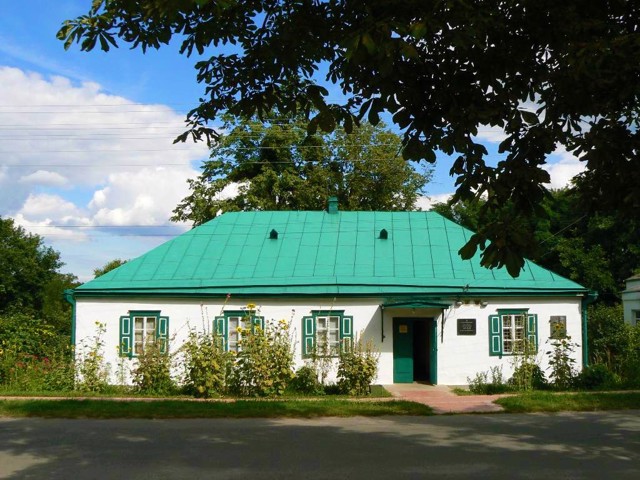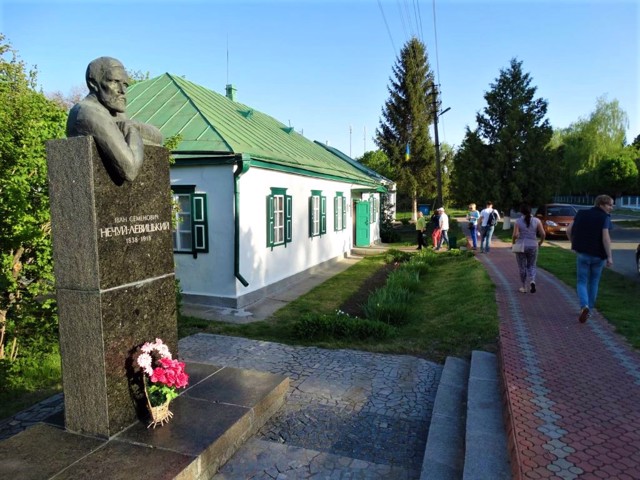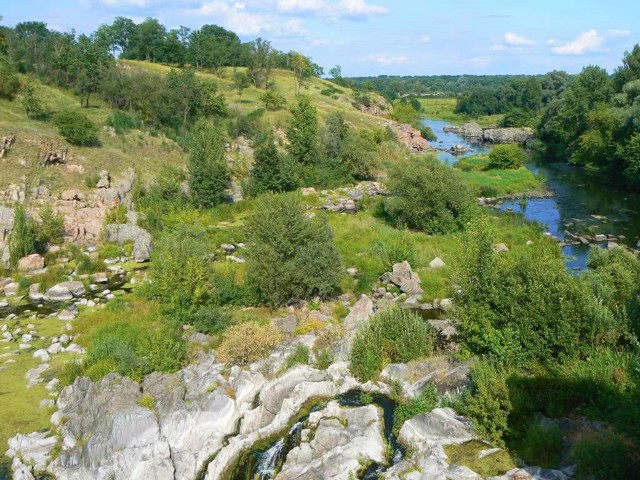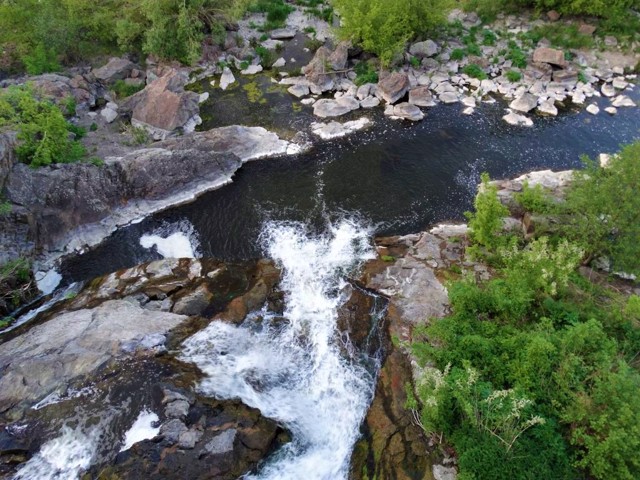Functional temporarily unavailable
General information about Stebliv
The picturesque town Stebliv is located on the rocky banks of the Ros River, 15 kilometers west of Korsun-Shevchenkivskyi.
The official biography dates back to the 17th century, but there is an assumption that as early as 1036, Prince Yaroslav the Wise built the border fortress Borovhrad here, which was later destroyed by the Tatars.
As part of Poland, Stebliv was a town of the Korsunskyi Starostvo, had Magdeburg rights. In Cossack times, it repeatedly became the site of bloody battles with the nobility.
In 1838, the outstanding Ukrainian writer Ivan Nechuy-Levytskyi was born here (the museum is open). A monument of garden and park art - the Holovinskyi estate - has also been preserved.
In 19 ...
The picturesque town Stebliv is located on the rocky banks of the Ros River, 15 kilometers west of Korsun-Shevchenkivskyi.
The official biography dates back to the 17th century, but there is an assumption that as early as 1036, Prince Yaroslav the Wise built the border fortress Borovhrad here, which was later destroyed by the Tatars.
As part of Poland, Stebliv was a town of the Korsunskyi Starostvo, had Magdeburg rights. In Cossack times, it repeatedly became the site of bloody battles with the nobility.
In 1838, the outstanding Ukrainian writer Ivan Nechuy-Levytskyi was born here (the museum is open). A monument of garden and park art - the Holovinskyi estate - has also been preserved.
In 1931, according to the GOELRO plan, a hydroelectric power station was built on the threshold of Ros. The formed reservoir hid most of the spectacular rocks of the canyon, but even now the landscapes of Stebliv impress with the magnificence of nature.
Мальовниче селище Стеблів розташоване на скелястих берегах річки Рось в 15 кілометрах на захід від Корсуня-Шевченківського.
Офіційну біографію веде з XVII сторіччя, проте є припущення, що ще 1036 році князь Ярослав Мудрий побудував тут прикордонну фортецю Боровград, яку пізніше зруйнували татари.
В складі Польщі Стеблів був містечком Корсунського староства, мав Магдебурзьке право. В козацькі часи неодноразово ставав місцем кривавої боротьби зі шляхтою.
В 1838 році тут народився видатний український письменник Іван Нечуй-Левицький (працює музей). Також збереглася пам'ятка садово-паркового мистецтва - садиба Головінських.
В 1931 році, згідно з планом ГОЕЛРО, на порогах Росі була споруджена ...
Мальовниче селище Стеблів розташоване на скелястих берегах річки Рось в 15 кілометрах на захід від Корсуня-Шевченківського.
Офіційну біографію веде з XVII сторіччя, проте є припущення, що ще 1036 році князь Ярослав Мудрий побудував тут прикордонну фортецю Боровград, яку пізніше зруйнували татари.
В складі Польщі Стеблів був містечком Корсунського староства, мав Магдебурзьке право. В козацькі часи неодноразово ставав місцем кривавої боротьби зі шляхтою.
В 1838 році тут народився видатний український письменник Іван Нечуй-Левицький (працює музей). Також збереглася пам'ятка садово-паркового мистецтва - садиба Головінських.
В 1931 році, згідно з планом ГОЕЛРО, на порогах Росі була споруджена гідроелектростанція. Утворене водосховище приховало більшу частину ефектних скель каньйону, але і зараз стеблівські пейзажі вражають пишністю природи.
Сплануй своє перебування у Stebliv
What to see and where to go in Stebliv
Tourist attractions and museums of Stebliv
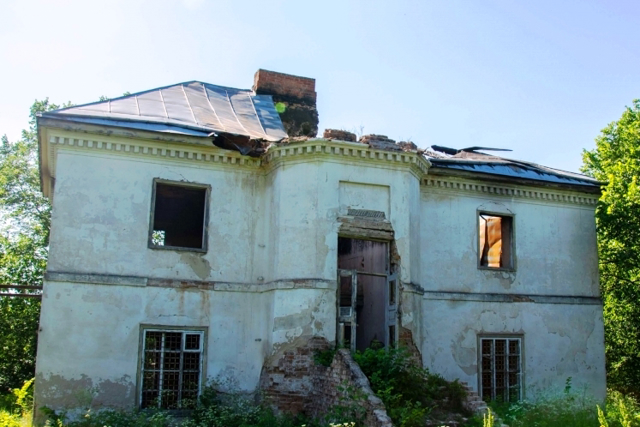
Holovynsky Manor
Palace / manor , Architecture
The manor of the Holovynsky landowners in Stebliv is located on the high rocky bank of the Bobrovytsya River at its confluence with the Ros.
The Holovynsky took ownership of Stebliv in 1812 from its senior owners, the Voronetsky. The new owners contributed to the industrial development of the town by building sugar and distilleries, as well as a large cloth factory.
In their estate, the Holovynskis laid out a park with gazebos and built a palace with outbuildings. In 1825, Herman Holovynsky hosted the Polish poet Adam Mitskevych here. The wing in which the poet lived has been preserved. The rest of the manor buildings, including the palace, were destroyed during the Soviet era.
Not far from the outhouse is the "Mitskevych Rock", which offers a magnificent panorama of Ros.
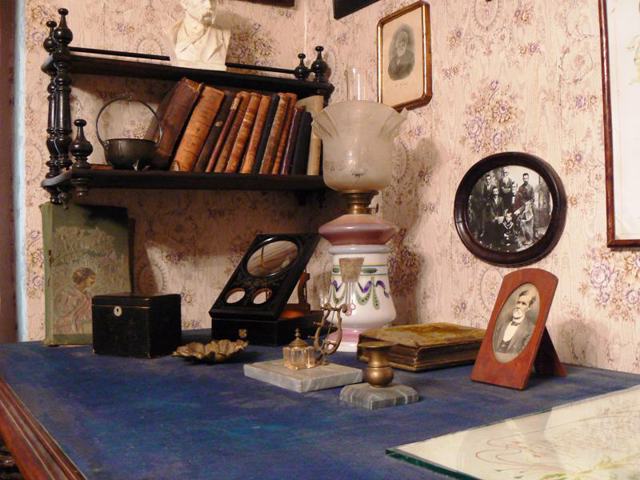
Ivan Nechuy-Levytsky Literary Memorial Museum
Museum / gallery
The Literary Memorial Museum of the outstanding Ukrainian writer Ivan Nechuy-Levytsky was opened in Stebliv in the house where he was born in 1838.
He lived here from 1851 to 1909.
The exposition tells about the life and creative activity of a classic of Ukrainian literature, who was treated with great caution both during the times of Tsarist Russia and during the Soviet regime. The writer's office has been recreated, and his personal belongings have been collected.
Next to the museum, behind the house of culture, on Spasa Hill are the graves of Nechuy-Levytsky's grandfather and father.
A monument to the work of sculptor Halyna Kalchenko has been installed near the museum, and nearby is a sculpture of "Nymydora" (the heroine of the story "Mykola Dzherya").
The Literary and Memorial Museum of Ivan Nechuy-Levytsky in Stebliv is a department of the Korsun-Shevchenkivskyi State Historical and Cultural Reserve.
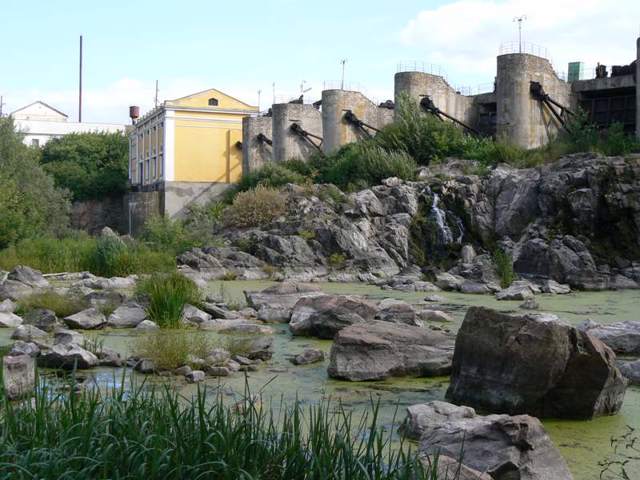
Stebliv HPP
Natural object , Architecture
The construction of a hydroelectric power station on the rapids of the Ros River in Stebliv was launched in 1931 in accordance with the GOELRO plan, which provided for the creation of a whole network of small hydroelectric power stations throughout the country.
As a result of the construction of the dam and the rise of the water level in the river, the landscape changed significantly - two thirds of the picturesque rocks and rapids were under water.
The dam was damaged during World War II. In 1952, it was restored and brought to a capacity of 2.8 thousand kW. It is currently rented from a private company.
The waterfall formed by the station is called one of the most powerful lowland waterfalls in the country.
Reviews Stebliv
Geographical information about Stebliv
| {{itemKey}} | {{itemValue}} |
|---|---|
| Region |
Cherkasy |
